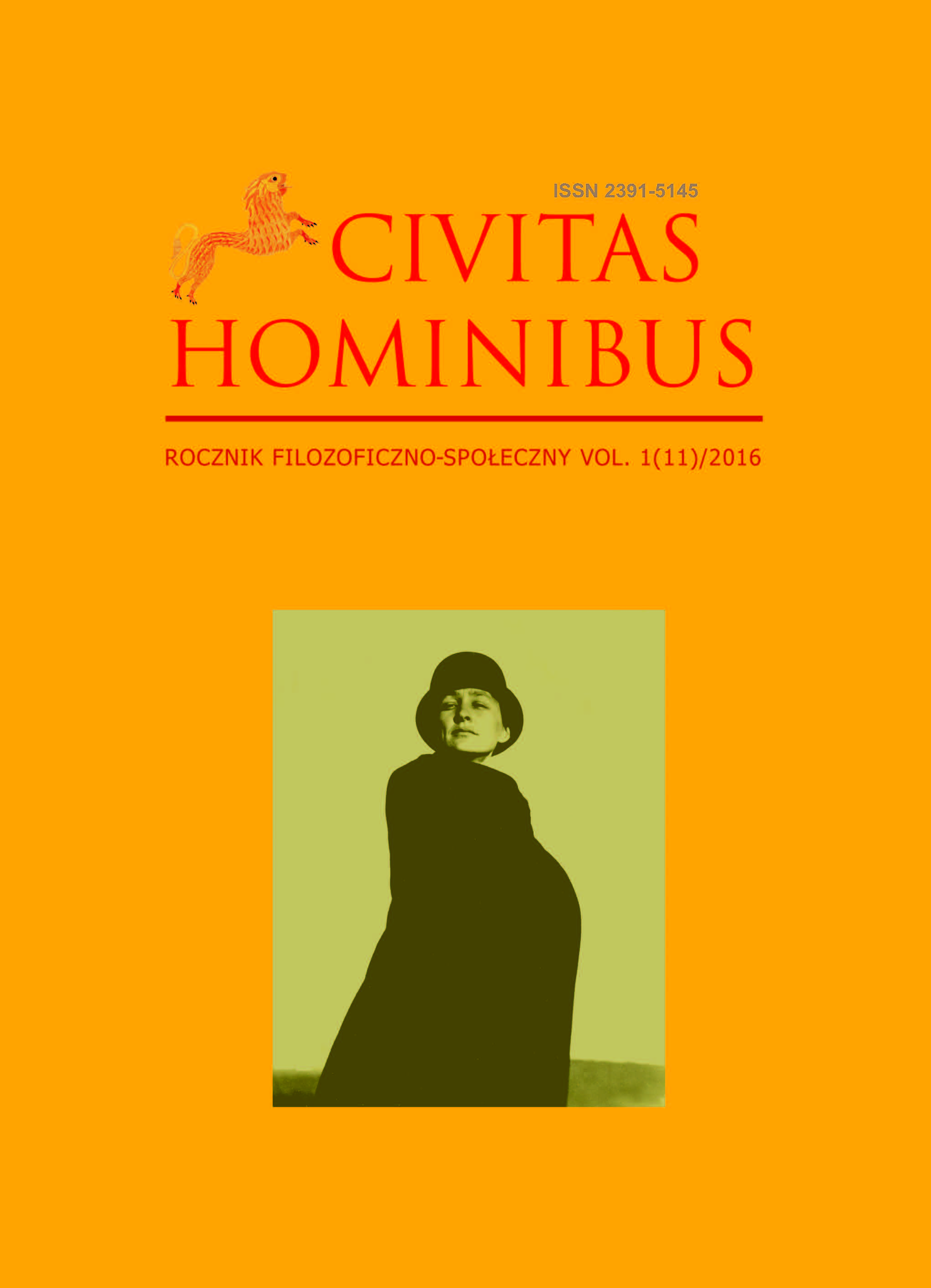The Role of women’s social activists in the creation of cultural life among polish female prisoners in concentration camps during World War II.
DOI:
https://doi.org/10.25312/2391-5145.11/2016_115-122Keywords:
survival strategies, cultural life, concentration camps, paratheatrical forms, defense against dehumanization, mental escape, social activists, Janina Peretjatkowicz, Karla Lanckorońska, Maja Berezowska, Waleria Felchnerowska, Matylda WoliniewskaAbstract
One form of survival in extremely harsh conditions of concentration camps was the sustenance of cultural life, which speaks to the immensely important role of culture in maintaining humanity and one's own identity. Participation in even the smallest cultural events brought a piece of a different world into the lives of the imprisoned. It could involve personal creativity, recitations of well-known works, or active or passive involvement in various forms of performance, which were the easiest means of artistic expression.
Analyzing the history of individuals like Janina Peretjatkowicz, Karla Lanckorońska, Maria Berezowska, Waleria Felchnerowska, or Matylda Woliniewska, who were involved in creating internal camp structures, mutual aid, and educational-cultural life, we see that the greatest influence on the success of these initiatives in women's camps was the activity of educated and professionally active women before the war. Their inner strength, and often their experiences in social work, motivated the entire group to take collective action.
Downloads
References
Głębocki W., Mórawski K., Kultura walcząca 1939–1945. Z dziejów kultury polskiej w okresie okupacji, Interpress, Warszawa 1985.
Janina Peretjatkowicz, Internetowy Polski Słownik Biograficzny, http://www.ipsb.nina.gov. pl/index.php/a/janina-peretjatkowicz [dostęp: 29.07.2015].
Kunikowska E., Maja Berezowska, http://ciekawe.onet.pl/nieprzecietni/maja-berezowska,2,5667422,artykul.html [dostęp: 29.07.2015].
Lanckorońska K., Wspomnienia wojenne, Znak, Kraków 2001. Maciejewska-Janke T., Harcerstwo żeńskie w Bydgoszczy 1918–1949, ZHP Hufiec BydgoszczMiasto, Bydgoszcz 2002, http://www.cantoria.home.pl/nauczyciele/index.php?item=1&n=felhnerowska_waleria [dostęp: 29.07.2015].
Nikliborc A., Uwięzione w KL Auschwitz-Birkenau. Traumatyczne doświadczenia odzwierciedlone w dokumentach osobistych, Nomos, Kraków 2010.
Peretjatkowicz J., Jak się to zaczęło… Matura w Ravensbrück, „Głos Nauczycielski”, 1960.
Peretjatkowicz J., Wiedza o Ziemi w obozie koncentracyjnym, „Przegląd Geograficzny”, 1945/6.
Ströcker-Sobelman J., Kobiety Holokaustu. Feministyczna perspektywa w badaniach nad Shoah.
Kazus KL Auschwitz-Birkenau, Trio, Warszawa 2012.
Wińska U., Zwyciężyły wartości. Wspomnienia z Ravensbrück, Wydawnictwo Morskie, Gdańsk 1985.
Żmijowa M., Mury: harcerska konspiracyjna drużyna w Ravensbrück: wspomnienia, Śląski Instytut Naukowy, Katowice 1986.
Downloads
Published
Issue
Section
License
Copyright (c) 2016 Akademia Humanistyczno-Ekonomiczna w Łodzi

This work is licensed under a Creative Commons Attribution-ShareAlike 4.0 International License.

